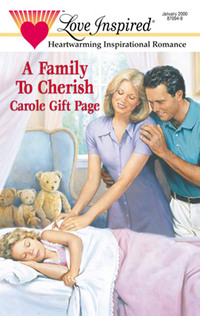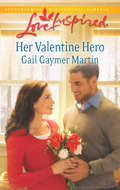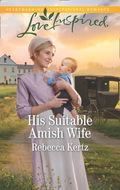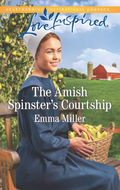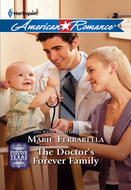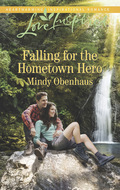Kitap dosya olarak indirilemez ancak uygulamamız üzerinden veya online olarak web sitemizden okunabilir.
Kitabı oku: «A Family To Cherish», sayfa 2
Chapter Two
Caitlin’s room.
At midnight, as if drawn by a force beyond herself, Barbara opened the door, flicked the light switch and stepped inside, cradling the Victorian teddy bear in her arms. The room looked exactly as it had four years ago. Other than this stuffed bear, not one item had been moved, except during dusting and cleaning. Ruffled Priscilla curtains with tiny sweetheart roses framed the windows. The canopy bed was neatly made with its downy white comforter trimmed with eyelet. A family of teddy bears was nestled together in the royal blue Queen Anne chair by the bed, awaiting the return of Mrs. Miniver, Caitlin’s favorite. Barbara replaced it now, tenderly adjusting the red taffeta skirt and floppy hat.
Barbara scanned the room again with a sense of relief. Yes, everything was back in place, the way it was meant to be. The white French provincial dressing table and bureau boasted a whimsical hodgepodge of dolls and books and games. The walls were bright with a mélange of crayon drawings, the paper yellowed now. And on the bed lay Caitlin’s pink ruffled nightgown exactly as she had left it so long ago.
“Caitlin, my precious baby,” Barbara said with a muffled sob. “Dear God, why do I do this to myself? Why can’t I forget?” She stepped back out of the room and shut the door, her hand trembling slightly as she turned the key in the lock. At least now no one could trespass and violate her daughter’s memory.
The next morning, shortly after Doug left for the hospital, Barbara reluctantly joined Nancy, Paul, and Janee for their grand tour of Southern California, starting with Universal Studios.
“It’s too bad Doug couldn’t join us,” Nancy told Barbara as they stood in the long ticket line under a scorching August sun. Paul and Janee had moved to another line to see who got to the window first, and now Nancy seemed all too eager for chitchat. “You know, Barb, I told my brother he’s become a stuffy workaholic. I said, ‘Doug, life is too short to spend every waking moment in some dreary office.’ And don’t tell me he’s not, Barb. I can read between the lines. I say to him, ‘Doug, you and Barbara should be out having some fun and enjoying each other.’ Tell me the truth, Barbara. He doesn’t have fun anymore, does he?”
“Work is his fun these days,” Barbara admitted. She looked away, her gaze moving absently over the restless crowds waiting at the ticket windows. She didn’t want to get into this conversation with Nancy. How could she explain to Doug’s sister what she couldn’t articulate? What could she say? When Caitlin was alive, we were a happy family brimming over with love and smiles and good times. Without Caitlin, our lives, our home, even our love has become an empty shell.
As if reading her thoughts, Nancy patted Barbara’s arm and said softly, “God can give you His joy again, Barb. He never takes anything away without giving us something just as wonderful in its place.”
Barbara nodded dutifully, steeling herself. She wasn’t in the mood to hear a sermon now, especially from Nancy, whose boundless fervor and exuberance for life had a way of exhausting the most intrepid of souls.
“You and Doug helped Paul and me discover that truth years ago,” Nancy went on earnestly, brushing her flyaway honey-blond hair back from her face. “You introduced us to Christ’s love, Barb, and, thank God, our lives haven’t been the same since.”
“I’m glad, Nancy. Doug and I are very happy for you…”
Nancy grinned, squinting against the sunlight. “I bet you and Doug don’t even realize what you did for us. I just wish we could return the favor.”
“Don’t be silly, Nan.”
“Silly? I’m serious as a judge. But any gift or gesture I can think of pales by comparison. I mean, we’re talking about eternity here. They don’t make thank-you cards for that, do they?” Her lips arced in a whimsical smile. “Let’s see. ‘Roses are red, violets are blue…. Since you showed us God’s love, we’re ever indebted to you.’ It’s not Wordsworth or even Snoopy and Charlie Brown, but you get the idea.”
Barbara moved forward, following the line. “Really, Nancy, Doug and I just did for you what someone else did for us long ago. We shared our faith, that’s all. And now you’re fine and we’re fine. Everybody’s fine!”
Nancy clasped Barbara’s arm again. “Come on, Barb. Paul and I can both see how the two of you are hurting. We talked about it last night, and if there’s anything we can do to help, let us know. We’d love to do it.”
Barbara wanted to say, Just let us be. Instead, she forced herself to reply sweetly, “Thanks, Nan, you’re the best. But like I said, we’re okay.”
And that was the stance Barbara clung to tenaciously over the next three days as she accompanied Nancy, Paul and Janee to Disneyland, Knott’s Berry Farm and Laguna Beach, not to mention two pizza houses, four fast-food restaurants, and one kiddieland carnival in the local mall.
No one could say Barbara Logan wasn’t a trooper. She’d show Nancy she could have fun if it killed her. And it nearly did. She had the battle scars to prove it—a broken stacked heel, a torn linen jacket, a lost contact lens, and cotton candy stuck in her freshly coiffed hair. She’d never walked so much in her life, nor endured so many screaming kids, head-spinning amusement-park rides, and ear-splitting rap tunes. She was positively nauseated from too many greasy cheeseburgers, spicy pizzas, and hot dogs on a stick. For some reason, Nancy’s vegetarianism went out the window when it came to eating out at California’s leading tourist attractions.
When Paul and Nancy and little Janee piled into their van on Thursday morning for their drive home to San Francisco, Barbara stood waving goodbye in the driveway, grinning from ear to ear like the original Cheshire puss. Privately she was relieved that they were going home and that her life could get back to normal. I couldn’t face another roller coaster or eat another kiddie meal or face another surging, suffocating crowd of frenzied tourists!
That evening, Doug arrived home in time for dinner, no doubt knowing the coast was clear and the company gone. “So they got off okay?” he asked as he sat down at the table and spread his napkin over his lap.
“Yes, all three of them. Early this morning.” Barbara set a casserole of chicken and noodles on the table and sat down across from Doug.
“I guess they had a good time,” he mused, stirring a spoonful of sugar into his iced tea.
“The time of their lives,” said Barbara through clenched teeth. She was suddenly angry, so angry it surprised her. Her hand almost trembled as she handed him the tossed salad. “No thanks to you, Doug.”
He looked at her, one brow arching. “You know I had to work.”
“Every day? You couldn’t take one day off to be with your own sister who comes to visit just once every few years?”
“I was here in the evenings.”
“When everyone was too tired to visit.”
“All right, so I’m the bad guy. So what’s new? What do you want me to do about it?”
“Nothing. It’s too late. Forget it.”
Doug let his fork clatter on his plate. “Don’t play the sweet little martyr with me, Barb. You know you didn’t want to be out there running all over town with my sister and her kid, either.”
“No, but I went anyway, didn’t I?”
“No one twisted your arm.”
“I went because she’s your sister, and someone in this family has to act like life is normal, no matter how skewed it really is.”
A tendon tightened along Doug’s jaw. “We play this same record over and over again, don’t we, Barb? We keep going in vicious little circles. When will it ever end?”
She speared a morsel of chicken, but had no desire to eat. Her stomach was in knots, her throat constricting. “If you think I like things this way—”
They were both silent for a long miserable moment. Finally he asked coolly, “So how did it go with Janee?”
“Janee?”
“Yeah. The kid who makes Dennis the Menace look like an angel. Did she behave herself?”
Barbara’s anger smoldered. Doug had an infuriating way of changing the subject whenever they got too close to painful truths. “If you must know, Janee drove me up a wall,” she replied. “She had me pulling my hair. I don’t think I could have tolerated that child in this house for one more hour.”
“Come on, Barb. She couldn’t have been that bad.”
“How would you know? You weren’t here. And she was asleep by the time you got home.”
“From what I saw of her, she’s a spunky little tyke. Cute as a bug’s ear. Okay, maybe a bit too mischievous for my tastes.”
“Are you kidding? Paul and your sister never discipline that child. She’s spoiled and impudent. Worst of all, they think everything she says and does is perfectly charming.”
Doug’s expression softened. “Weren’t we that way, too, Barbie?”
“No. Never. All right, almost never.”
“So what did Janee do that was so bad?”
Barbara inhaled sharply. “She spilled grape juice on our plush carpet. She trampled my flower beds picking roses for her mother. She ran up and down the stairs and slammed doors and did a Tarzan yell that rattled my eardrums and put her muddy shoes on my velvet sofa.” Barbara’s voice quavered with an onrush of emotion. “And she kept begging me to let her sleep in the ‘pretty room,’ as she called it.”
“Maybe you should have let her,” said Doug under his breath.
Barbara stared at him in astonishment. “You don’t mean that.”
“Don’t I? Maybe it’s time we let it go, Barb. Stop making it a monument or a memorial or a shrine, or whatever you want to call it.”
Barbara pushed her chair back from the table and stood up, her ankles wobbly. “I’m not hungry, Doug. Will you put the food away? I’m going to bed.”
He stared at her, his brows knitting in a frown. “What about the dishes?”
“Leave them. I’ll do them in the morning.”
He bent over his plate, scowling, and muttered, “A lot of good it does, me coming home for dinner. You just walk off. Next time I’ll pick something up at the hospital.”
“Fine. You’ll probably find better company there, too.”
“Now that you mention it, I probably will.”
She pivoted and, without a backward glance, marched out of the room, quickly ascending the stairs to the bedroom. She undressed and slipped into her most revealing negligee, perversely hoping to tempt her husband just so she could reject his advances. She hated herself for behaving this way, hated the terrible dead-end course their marriage had taken, but she felt powerless to change anything. It was as if she and Doug were actors on a stage, spewing words they didn’t mean, words forced upon them by circumstances beyond their control.
Barbara had felt powerless since the day Doug had told her there was nothing they could do to save Caitlin. It seemed the only power she or Doug had these days was to inflict hurt on each other. It was what they were best at. What irony that the wounded had become so skilled at wounding one another. What hope was there for healing?
Barbara was nearly asleep when she heard Doug come up to bed. She lay still, her back to him as he climbed in beside her and rolled onto his side, away from her. She felt the weight of his body on the mattress, heard the springs creak. She waited, her breathing slow and rhythmic, pretending to slumber. Would he touch her? What would she do if he did? Should she risk letting him know she was awake and needed his closeness?
Barbara’s questions faded when she heard her husband’s deep, steady breathing. She lay in the darkness, listening, waiting. Doug was so close to her that she could feel his warmth as he lay stretched out beside her under the covers. And yet he had never seemed more distant. And she had never felt more alone.
In the middle of the night the telephone rang, startling them both out of sleep. With a muffled snort, Doug sat up and grabbed the bedside phone. Barbara sat up, too, her mind still shrouded in the gauzy cobwebs of a dream. She turned on the lamp and tried to focus on what Doug was saying. By his tone she knew something was wrong. Terribly wrong.
“Yes, this is Douglas Logan,” he was saying. “Nancy Myers? She’s my sister. What? When? Good Lord, no! Where did it happen? Are they—? Yes, I’ll be there. What hospital? All right. We’ll catch the next available plane.”
He hung up the phone and looked at her, his face drained of color, the lines around his eyes taut, distorted with shock and fear. She knew that look; it was coldly, frighteningly familiar; she had seen it a thousand times in her memory. That look had shattered her life, turned her world upside down. And now it was happening again. Her heart pumped with dread. “What happened?” she demanded.
His voice was tight, hushed. “That was the police. It’s Nancy. Their car crashed just south of San Francisco.”
Her skin prickled with an icy foreboding. “Oh, Doug, no! Are they okay?”
“They’re in the hospital. In some little rural town. A suburb south of San Francisco. We’ve got to go.”
“Of course. I’ll throw a few things in a bag.”
He nodded. “I’ll call the airline.”
It was amazing how in sync she and Doug could be when an emergency demanded it, she thought as she packed a suitcase, tossing in underwear, sleep-wear, toiletries, and a couple of changes of clothes for each of them. She made sure she had their address book, checkbook and a credit card, and put out enough food and water to last Tabby for a couple of days.
“I’ve got us booked on a red-eye special out of Burbank at four a.m.,” said Doug, as she ran a brush through her hair. “They’ll have a rental car waiting for us in San Francisco.”
Barbara and Doug said little to each other during the drive to the airport and the flight to San Francisco. Each was tight-lipped, their thoughts turned inward, their emotions on hold.
They arrived at San Francisco International shortly after five a.m. The airport was nearly deserted, with only a few passengers milling around or catching a catnap on some iron bench. The huge superstructure with its endless high-ceilinged corridors was so silent and everyone so hushed that Barbara had the feeling she was walking through a mausoleum. The only immediate sound she heard was the echo of her own heels on the hard tile floor as she and Doug traversed the long hall to the baggage carousel. After retrieving their suitcase and securing their rental car, Doug got directions, and they drove the twenty miles to St. Mary’s Hospital north of Hillsborough. Again, mostly in silence.
It was nearly six a.m. when they entered the hospital lobby. Daylight was already filtering through the windows, giving the room a smudged, hazy cast, as if the darkness were reluctant to relinquish its hold. Doug went straight to the information desk and asked where he could find his sister. The receptionist checked her charts and directed them upstairs, to the third floor, the Intensive Care Unit. “Dr. Glazier is on call.”
They took the elevator upstairs to the ICU nurses’ station, and Doug asked to see his sister, his voice tight with anxiety and impatience.
“I’ll page Dr. Glazier,” said the nurse. “Please have a seat in the waiting room.”
Doug held his ground. “I just want to know if my sister and her family are okay. Can’t you tell me that much?”
“I’m sorry. You’ll have to speak with the doctor.”
Doug’s tone hardened. “Listen, I am a doctor. A surgeon. And I want some answers. Now.”
“Dr. Glazier is on his way, Doctor. Please have a seat.”
Doug was about to protest again, but instead he threw up his hands in a gesture of futility and muttered something under his breath. He and Barbara crossed the hall to the waiting room and sat down on a green vinyl couch beside a tall potted palm. Nearby stood a table with a carafe of coffee and foam cups. Barbara got two cups of black coffee and handed one to Doug. “Maybe this will help.”
“Thanks. Some news would help even more,” he snapped. “All I want is a little information about Nan, and you’d think I was after top government secrets or something.”
Barbara thought of something. “What about Pam and Benny? I wonder if anyone’s called them.”
“Let’s wait until we have some news to report.”
Finally, a lanky man in a white lab coat approached; he had a narrow face, thinning hair, and a small black mustache. He held out his hand to Doug. “Mr. and Mrs. Logan? I’m Dr. Glazier.”
“It’s Doctor Logan,” said Doug. “How’s my sister?”
“I won’t sugarcoat it, Dr. Logan. It’s serious. Your sister has sustained multiple injuries, including a lacerated liver and spleen. We operated immediately, but there was too much damage. She’ll need further surgery, but at the moment she’s too weak. If she can gain some strength in the next day or two…”
“What about her husband, Paul?”
Dr. Glazier’s brow furrowed. “I’m sorry. Your sister’s husband was killed on impact. A drunk driver crossed into their lane and hit them head-on.”
“And their daughter?” asked Barbara, choking back a sob. “Did she make it?”
Dr. Glazier’s voice brightened slightly. “Yes. She was asleep in the back seat. She sustained only minor injuries. She’s in the pediatric wing. Barring any complications, we should be able to release her in a few days.”
“When can I see my sister?” asked Doug.
“The two of you can see her now, but just for a few minutes. She’s in module 2A.”
Barbara and Doug instinctively clasped hands as they entered the small, unadorned room. In the large hospital bed lay a pale figure connected to a maze of blinking, whirring machines. Barbara clasped her hand over her mouth and whispered, “Oh, Doug, she looks so bad.”
Doug approached the bed and put his hand on Nancy’s arm. His voice rumbled with emotion. “Hey, sis, it’s me, your big brother.”
Nancy’s eyes fluttered open, but her gaze remained unfocused. “Doug?” she murmured through pale, swollen lips.
“Yeah, it’s me, baby. Barbara’s here, too.”
Nancy struggled to speak, her lips forming a faint smile. “Didn’t think…you’d see me again…so soon…did you?”
“Can’t say that I did,” said Doug, his voice catching.
“You know me,” whispered Nancy, closing her eyes. “Always doing…the unexpected.”
Barbara slipped over to the other side of the bed and gently smoothed back Nancy’s mussed hair. “Now we need you to get well, Nan. Show us how quickly you can come back to us, okay?”
Nancy moistened her dry lips and gazed up urgently at Barbara. “Janee? Is she…okay?”
Barbara nodded. “She’s going to be fine, Nan. The doctor says she’ll be out of the hospital in a few days, good as new.”
“Thank God.” Nancy lifted her hand weakly to Barbara. “If Paul and I…don’t make it…take care of Janee.”
“Don’t be silly, Nan,” said Barbara, forcing a smile. “You’re going to be just fine.”
“Promise me, Barb. Just in case. Take care of my little girl.”
Barbara blinked away sudden tears. “Of course we will.”
Nancy swallowed hard and groped for words, her voice growing faint. “Teach her about art…and music…and poetry. Take her to church. Show her God’s love…like you showed us.”
Barbara fished for a tissue in her purse and blew her nose. “We will, Nan. I promise.”
“Give her all the love…Paul and I gave her. She needs…a lot…of love.”
Doug bent over the bed and kissed his sister’s pale forehead. “We’ll take good care of her, Nan, until you’re well again and can take care of her yourself. You just concentrate on getting better, okay?”
Nancy turned her eyes to Doug, her sallow skin taut against her high cheekbones. “Say a prayer. Please.”
Doug hesitated for a long moment, giving Barbara a look that said, Get me out of this. She stared back unflinchingly and waited. Finally Doug bent over the bed, his face close to Nancy’s, and whispered a simple, heartfelt petition for her healing. Halfway through he stopped and drew in a deep, shuddering breath. In the silence Barbara could hear the whoosh and click of the machines monitoring Nancy’s vital signs. After a minute, Doug spoke again, his voice broken, the anguished words rising on a sob as he begged God to spare his sister’s life.
It was the first prayer Barbara had heard Doug utter in over four years.
